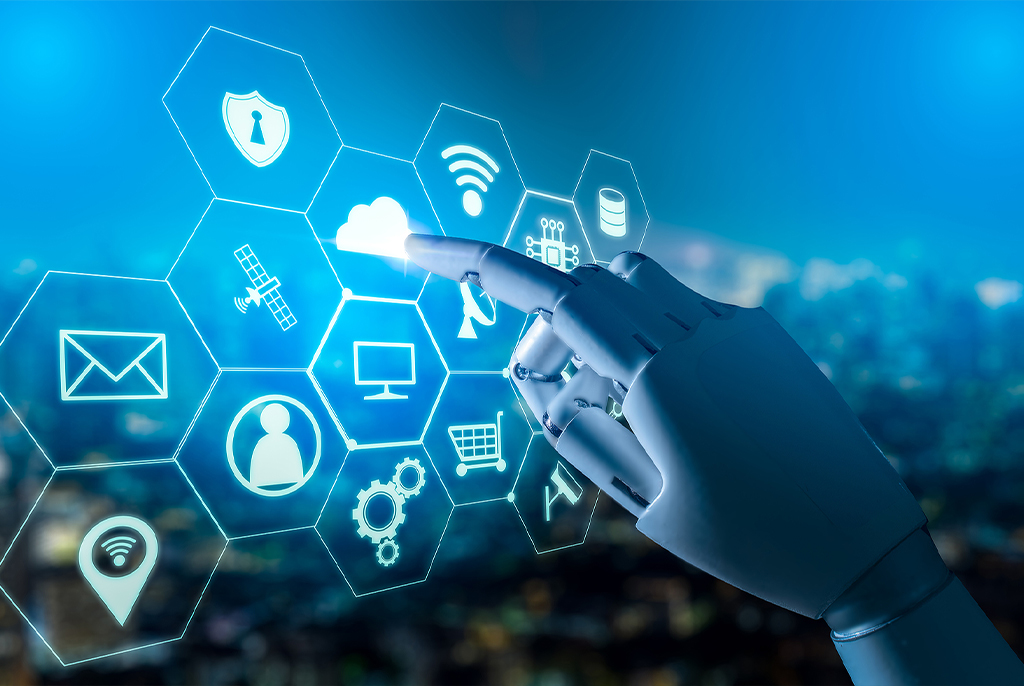
“Tech Connect: Your Guide to Modern Tech Trends
Related Articles Tech Connect: Your Guide to Modern Tech Trends
- The Advancements In Cloud Technology: Benefits And Challenges
- The Rise Of 5G Technology And Its Impact On Digital Communication
- Neurosymbolic AI: The Game-Changer In Machine Learning And Reasoning
- AI And The Future Of Work: Will Humans And Machines Coexist Or Compete?
- What Is Big Data And How Does It Impact Business?
Introduction
Uncover the latest details about Tech Connect: Your Guide to Modern Tech Trends in this comprehensive guide.
Tech Connect: Your Guide to Modern Tech Trends
The world is changing faster than ever before, driven by an unrelenting wave of technological innovation. From the smartphones in our pockets to the artificial intelligence shaping our future, technology is no longer a peripheral element of our lives; it’s the very fabric of our existence. Understanding these technological shifts is no longer a luxury, but a necessity for navigating the modern world, whether you’re a seasoned professional, a curious student, or simply someone seeking to stay informed. This "Tech Connect: Your Guide to Modern Tech Trends" aims to illuminate the most significant advancements shaping our present and future, providing a clear, concise, and accessible overview of the key areas driving technological progress. We’ll explore the impact of these trends on various aspects of life, from the workplace to our personal relationships, and offer insights into how you can leverage these changes to your advantage. This guide isn’t just about understanding technology; it’s about understanding its implications and harnessing its potential.

1. The Rise of Artificial Intelligence (AI) and Machine Learning (ML):
Artificial intelligence is no longer a futuristic fantasy; it’s a rapidly evolving reality. AI and its subset, machine learning, are transforming industries at an unprecedented pace. Machine learning algorithms, capable of learning from data without explicit programming, power everything from personalized recommendations on Netflix to sophisticated medical diagnoses. AI-powered chatbots are revolutionizing customer service, while autonomous vehicles promise to reshape transportation. The impact extends beyond convenience; AI is driving efficiency gains in manufacturing, optimizing supply chains, and even assisting in scientific breakthroughs. However, ethical considerations surrounding bias in algorithms, job displacement, and data privacy remain crucial challenges that need careful consideration. For individuals, understanding the basics of AI and its applications can be a significant advantage in navigating the changing job market and leveraging AI-powered tools to enhance productivity.
2. The Metaverse and Extended Reality (XR):
The metaverse, a persistent, shared, 3D virtual world, is rapidly gaining traction. While still in its nascent stages, the metaverse promises to revolutionize how we interact, work, and play. This immersive digital environment, enabled by technologies like virtual reality (VR), augmented reality (AR), and mixed reality (MR) – collectively known as extended reality (XR) – is transforming gaming, social interaction, and even commerce. Companies are already experimenting with virtual offices, virtual events, and immersive shopping experiences. The potential for education, training, and remote collaboration is immense. However, challenges remain, including the development of robust infrastructure, addressing accessibility issues, and mitigating potential ethical concerns related to data privacy and digital identity. Staying informed about the evolution of the metaverse and its applications can provide a significant advantage in understanding future technological landscapes.
3. The Internet of Things (IoT) and the Data Deluge:
The Internet of Things (IoT) refers to the ever-growing network of interconnected devices, from smart home appliances to industrial sensors. These devices collect vast amounts of data, creating a "data deluge" that presents both opportunities and challenges. Analyzing this data using big data analytics and cloud computing provides valuable insights for businesses, improving efficiency, optimizing processes, and enabling predictive maintenance. The IoT is transforming healthcare with wearable sensors monitoring patient health, agriculture with smart irrigation systems, and manufacturing with real-time monitoring of equipment. However, security concerns related to data breaches and the ethical implications of data collection and usage need careful consideration. Individuals can benefit from understanding the IoT’s impact on their daily lives and taking steps to protect their data privacy.
4. Blockchain Technology and Decentralization:
Blockchain technology, initially known for its association with cryptocurrencies like Bitcoin, is evolving beyond its financial applications. Its decentralized and secure nature makes it suitable for a wide range of applications, including supply chain management, digital identity verification, and secure data storage. Blockchain’s transparency and immutability offer potential solutions for combating fraud and enhancing trust in various transactions. The decentralized nature of blockchain also challenges traditional power structures, potentially leading to more equitable and transparent systems. However, scalability issues, regulatory uncertainties, and the energy consumption of some blockchain networks remain significant challenges. Understanding the potential and limitations of blockchain technology is crucial for navigating its growing influence across different sectors.
5. Quantum Computing: A Leap into the Future:
Quantum computing represents a paradigm shift in computing power. Unlike classical computers that use bits representing 0 or 1, quantum computers utilize qubits, which can represent both 0 and 1 simultaneously, enabling them to solve complex problems beyond the capabilities of even the most powerful supercomputers. Potential applications range from drug discovery and materials science to financial modeling and cryptography. While still in its early stages, quantum computing holds immense potential to revolutionize various fields. However, building and maintaining stable quantum computers is extremely challenging, requiring significant investment and specialized expertise. Keeping abreast of the advancements in quantum computing will be essential for understanding future technological breakthroughs.
6. Cybersecurity and Data Privacy: The Growing Importance of Digital Security:
With the increasing reliance on technology, cybersecurity and data privacy have become paramount concerns. The rise of sophisticated cyberattacks, data breaches, and ransomware necessitates robust security measures to protect individuals and organizations. Implementing strong passwords, using multi-factor authentication, and regularly updating software are crucial steps in enhancing personal cybersecurity. Organizations need to invest in robust security infrastructure, implement data encryption, and adhere to data privacy regulations like GDPR and CCPA. Understanding the evolving landscape of cyber threats and data privacy regulations is crucial for protecting sensitive information and mitigating potential risks.
7. The Future of Work and the Gig Economy:
Technology is reshaping the workplace, leading to the rise of remote work, the gig economy, and automation. While automation may displace some jobs, it also creates new opportunities in areas like AI development, data science, and cybersecurity. The gig economy, characterized by short-term contracts and freelance work, offers flexibility but also presents challenges related to job security and benefits. Adapting to these changes requires continuous learning, upskilling, and developing skills that are in high demand. Understanding the future of work and its implications is crucial for navigating the changing job market and securing future career prospects.
Conclusion:
This "Tech Connect: Your Guide to Modern Tech Trends" has explored several key areas driving technological advancement. From the transformative power of AI to the immersive potential of the metaverse and the ethical considerations surrounding data privacy, understanding these trends is not merely optional; it’s essential for navigating the complexities of the modern world. The future of technology is not predetermined; it is shaped by the choices we make today. As we continue to witness rapid advancements, embracing continuous learning, fostering critical thinking, and engaging in informed discussions about the ethical implications of these technologies will be paramount in ensuring a future where technology serves humanity’s best interests. What steps will you take to harness the power of these emerging technologies and contribute to a positive technological future?

Conclusion
Thus, we hope this article has provided valuable insight into Tech Connect: Your Guide to Modern Tech Trends. We hope you found this article informative and useful. See you in our next article!






